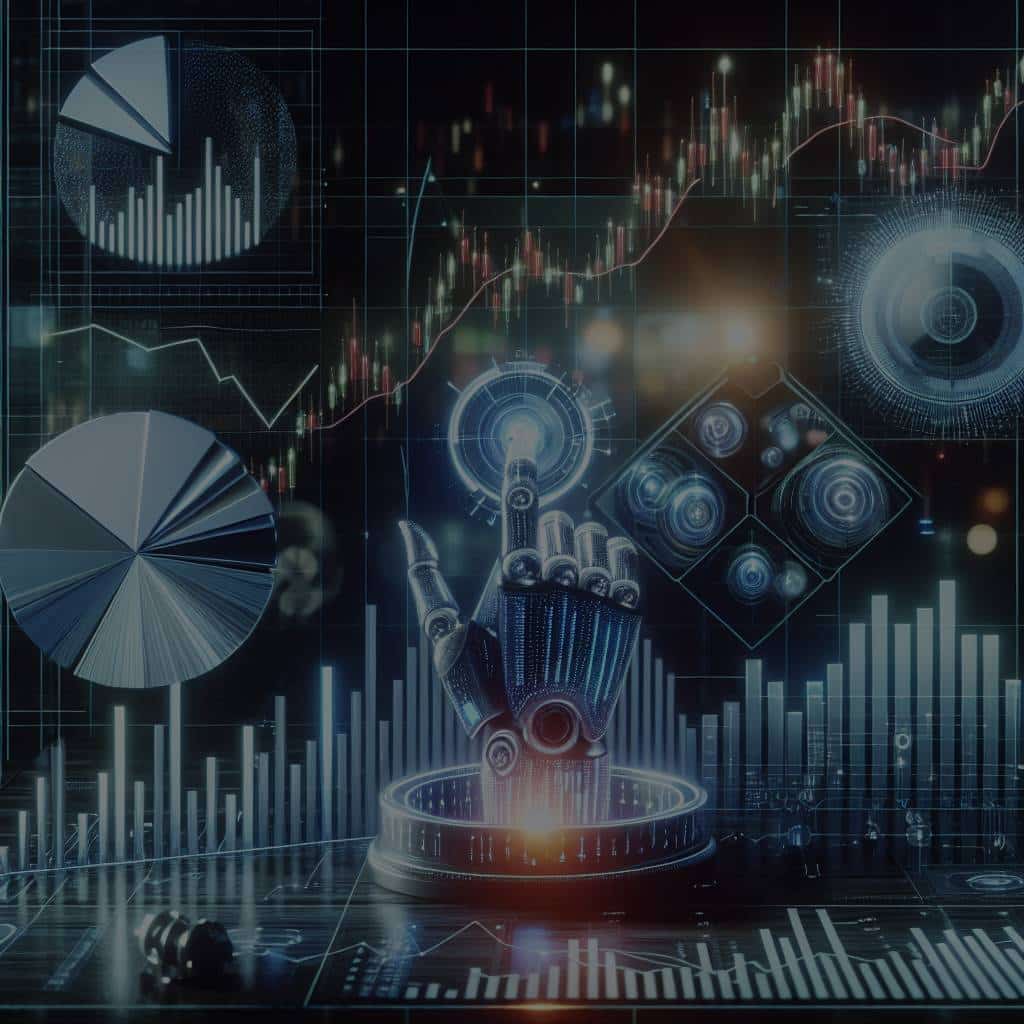Is AI Essential in Creating More Accurate Predictive Models for Stock Markets?

In the ever-evolving world of finance, stakeholders are constantly seeking ways to gain a competitive edge. The stock market, with its labyrinth of data and unpredictable variables, has always been a massive pool for financial explorers. Today, we’re delving into one of the most intriguing development in this field: the role of Artificial Intelligence (AI) in creating predictive models for stock markets.
The Power of Data in Stock Market Trading
The stock market is essentially a colossal ocean of data. Every minute, billions of transactions and countless economic indicators create an intricate web of information. Traders, investors, and financial analysts are always in a race to harness the power of this data to anticipate market trends and make informed trading decisions.
Topic to read : Can AI-Enhanced Drones Streamline Search and Rescue Operations in Remote Locations?
Earlier, traditional methods of predictive analysis involved manual scrutiny of historical data and technical indicators. But the explosion of digital data and the advent of high-frequency trading have rendered these conventional methods insufficient.
That’s where AI comes into play. AI-powered algorithms offer a new dimension to data interpretation and prediction modelling, as they can process vast amounts of data at lightning speed and learn from each iteration to improve the accuracy of their predictions.
Also to discover : How Are Advanced Telematics Systems Enhancing Vehicle Safety and Diagnostics?
The Emergence of Algorithmic Trading
Algorithmic trading, or algo trading, uses computer programs to execute trades at speeds and frequencies that are simply beyond the capabilities of a human trader. Algo trading models are based on pre-determined set of rules derived from historical and real-time data.
What makes algo trading truly revolutionary is its ability to analyze and execute orders in fractions of a second, thereby capitalizing on quick market fluctuations. It eliminates human errors and emotional biases, which often mar the decision-making process in trading.
In the context of AI, algorithmic trading takes a quantum leap. AI-based algorithms are not just rule-based; they learn from the data, adapt to market changes, and constantly improve their performance.
AI and Machine Learning in Financial Analysis
AI and Machine Learning (ML) represent a paradigm shift in financial analysis and predictive modelling. These technologies bring a new level of sophistication to data analysis, offering insights that were previously unattainable by traditional methodologies.
Machine learning models, an important subset of AI, are designed to learn from data and make predictions or decisions without being explicitly programmed. In the realm of stock trading, ML models are trained on historical market data and they learn to recognize patterns and correlations that can indicate future movements.
Financial analysts now leverage these AI and ML-based models to predict stock prices, identify investment opportunities, and manage risk. They offer an unprecedented level of accuracy, speed, and efficiency, empowering traders to make more informed and timely decisions.
Predictive Models and Market Predictions
The concept of prediction has always been central to stock trading. Whether it’s predicting the overall direction of the market or the future price of a specific stock, accurate predictions can be the difference between profit and loss.
But making accurate predictions is no easy feat. The stock market is influenced by a myriad of factors ranging from economic indicators and corporate earnings to investor sentiment and geopolitical events.
This is where AI-driven predictive models can provide a game-changing advantage. They can simultaneously analyze multiple variables, understand complex relationships, and generate reliable predictions. With AI’s learning capabilities, these models can adapt to changing market conditions and continually enhance their predictive accuracy.
AI: A Valuable Ally for Investors and Traders
AI has emerged as a valuable ally for investors and traders in the stock market. By automating data analysis and decision-making processes, it reduces the influence of human bias and error. It also levels the playing field by making sophisticated analysis and insights accessible to individual traders, not just large financial institutions.
AI-based prediction models are especially valuable for high-frequency trading where speed is of the essence. They enable traders to respond to market changes in real time and capitalize on brief windows of opportunity.
However, as with any technology, AI is not without its challenges. There are concerns about data privacy, algorithmic bias, and the lack of transparency in AI decision-making processes. As AI continues to evolve, these issues will need to be addressed to build trust and encourage wider adoption.
While it’s clear that AI is reshaping the landscape of stock trading, it’s important to remember that it’s not a magic bullet. AI can provide valuable insights and enhance decision-making, but it’s still up to individual traders and investors to use those insights wisely. As we move forward, the combination of human judgment and AI capabilities will likely be the key to success in stock market trading.
Deep Learning and Neural Networks in Stock Market Prediction
The application of AI in the stock market has taken a significant leap with the introduction of deep learning and neural networks. Just like the human brain, neural networks are capable of learning from experience. They can process and adapt to massive amounts of data, identifying patterns and correlations that could indicate future market trends.
Deep learning, a subset of machine learning, uses these neural networks to create more complex and accurate models. It operates by imitating the workings of the human brain to process data, create patterns, and make decisions. It can even understand non-linear relationships within the data, allowing it to make predictions with a high level of accuracy.
When applied to the stock market, deep learning models can analyze vast amounts of historical data, recognize patterns, and predict stock prices with extraordinary precision. They can factor in a wide array of variables, such as corporate earnings, economic indicators, and geopolitical events, simultaneously.
These models are particularly useful in high-stakes, high-speed trading environments where real-time market data is crucial. The ability to process information quickly and accurately can provide traders with a critical edge, enabling them to make quick decisions and take advantage of fleeting market opportunities.
However, while deep learning and neural networks bring remarkable benefits, they are not fully immune to mistakes. The quality of their predictions relies heavily on the quality and quantity of the data they are trained on. It is crucial to continually update and improve the models with new data to ensure the accuracy of the predictions.
Conclusion: Balancing AI and Human Judgment for Successful Trading
The advent of artificial intelligence in stock trading has revolutionized the way traders and investors make predictions and decisions. AI’s ability to analyze vast amounts of data, identify patterns, and make real-time predictions offers a competitive edge in the unpredictable world of the stock market.
AI and machine learning models, backed by deep learning and neural networks, have emerged as powerful tools for financial analysis and risk management. They provide traders with valuable insights into market trends and stock prices, enabling them to make informed decisions quickly and accurately.
However, despite the remarkable advantages of AI, it should not completely replace human judgment. AI models are ultimately tools that can provide valuable insights and information. The responsibility of making the final decision still lies with the traders and investors. They must understand how to interpret the insights provided by AI and apply them strategically to their trading strategies.
Furthermore, it’s important to address the challenges associated with AI, such as data privacy and transparency in decision-making processes. As the world of AI continues to evolve, these issues should be addressed to build trust and encourage wider adoption of these technologies in the realm of stock market trading.
In conclusion, AI is indeed essential in creating more accurate predictive models for the stock market. However, in the light of its potential challenges and limitations, it should be seen as a tool that complements, rather than replaces, human judgment. As we move forward, the optimal strategy would likely involve a balanced blend of artificial intelligence capabilities and human insight.
